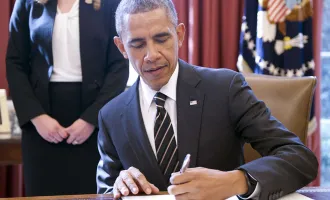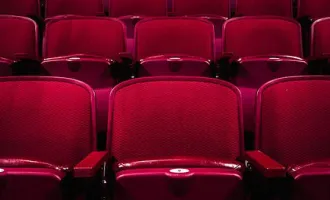This Date in UCSF History: Closing the Gap
Originally published in Synapse – The UCSF Student Newspaper, Sept. 25, 2008
The Student National Pharmaceutical Association (SNPhA), the Latino Association of Pharmacy Students (LAPS), and the Pilipinos of UCSF Student Organization (PUSO), three UCSF campus organizations, joined forces on Sunday afternoon to inform first-year Pharmacy students about "Closing the Gap: The Student Pharmacist Role as Advocates to the Underserved".
The event began with a welcome and introductory speech, fittingly given by Sharon Youmans, PharmD, MHP, who is currently serving the UCSF community as the Associate Dean of Diversity.
Youmans began by defining health disparities, pointing to such factors as racial and ethnic boundaries, socioeconomic statuses, gender, living areas and a slew of other factors.
Youmans also attributed health disparities to a lack of proficiency in the English language in many underserved communities, poverty among the "working poor" whose jobs do not provide health insurance options and immigrants who are afraid of seeking medical attention due to their undocumented status.
Finally, Youmans presented the audience with the leading causes of death for various communities in the San Francisco area.
Placing two communities side-by-side and comparing and contrasting the two, Youmans advised and challenged the listeners to learn the neighborhoods for which they are serving, noting that the needs of a community vary and have important implications on the leading causes of death for that specific community.
For example, Youmans spoke of the Bay view district of San Francisco as being a predominantly African-American community in which the leading cause of death is violence, followed closely by ischemic heart disease.
Meanwhile, Youmans presented the Marina district as suffering primarily from ischemic heart disease, followed closely by lung cancer.
Youmans closed by making three suggestions to the intently listening student pharmacists: Know the "vulnerable populations," know the community through researching issues specific to the community and by asking its members that the issues in their community are and participate in community service activities such as informational and educational sessions, screening, and immunization administration.
The key to success: preventative care!
The event continued with a Community Panel moderated by Youmans, during which student pharmacists had the opportunity to hear from underserved members of the greater San Francisco community speak about their life experiences.
Geri, an African-American woman, spoke about her experiences with drug abuse and addiction, abusive relationships and her current struggle with HIV.
Blanca, a post-baccalaureate student of Hispanic descent, spoke about her transition out of college during which time she was not insured, but was diagnosed with a retinal tear and became dependent on the Healthy San Francisco program for treatment and support.
Paul, a Caucasian male, shared his story of being in a coma for a 5-day period, followed shortly by a stroke, which left him confined to a wheel chair.
The panelists were asked their opinions regarding past experiences with pharmacists they had encountered.
Perhaps not knowing that her audience consisted of student pharmacists, Geri quickly responded by sharing that her encounters had been strictly with "cold-hearted" pharmacists, which left her frustrated as she opted to have her medications delivered so as to avoid contact with community pharmacists.
Blanca mentioned that she does not recall having many interactions with pharmacists. However, the few that she remembers are not memorable ones, as she spoke of the interactions as being "impersonal."
Paul spoke positively of his meetings with pharmacists, saying that they have been "nice" and "understanding" individuals. Their advice to the student pharmacists in the audience was simply to act with common courtesy - that is, to acknowledge patients as they enter the pharmacy.
Geri advised the audience not to take things personally, pointing to the fact that patients are oftentimes in pain or frustrated with their medications, and might have an "attitude" towards the pharmacists.
The event continued with breakout sessions held by current student pharmacists holding leadership positions in the above-mentioned organizations. These breakout sessions were focused on "Global and International Health," "Healthcare and Latino Communities," "National and Local Health Disparities," "Magandan Buhay: The Good Life" and "Outreach to the Kids."
The event ended after a "Call to Action" panel moderated by Roshini Epasinghe, consisting of three student pharmacists from the UCSF School of Pharmacy: Serena Huntington, Megan McCurdy and Martha Prieto. Advocates for the cause, these three student pharmacists spoke to their experiences and involvements with serving the underserved. Huntington focused on her current Schweitzer Fellowship, which is aimed at improving health outcomes through preventative medicine.
McCurdy shared her experiences in serving the underserved internationally in Mexico this past summer, where she was able to shadow physicians and learn Spanish for a period of one month.
Prieto spoke about her current involvement with telepharmacy and how her fluency in Spanish has helped her to serve the underserved Spanish-speaking populations of San Francisco.
The event concluded with a brief speech given by Epasinghe, advising fellow student pharmacists on career development and matters related to networking.
The sponsoring organizations hope to make "Closing the Gap" an annual event, so be sure to support them in advocating for the underserved at next year's event.



